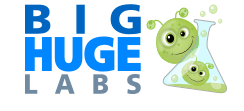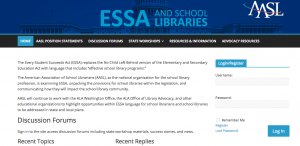 Originally Posted July 2, 2014
Originally Posted July 2, 2014
On Sunday June 30th I attended a white paper presentation at this year’s ALA Annual that revealed the results from an AASL spring symposium which focused on Causality: School Libraries and Student Success – CLASS for short. As a new doctoral candidate as well as an in-service school librarian, I felt a strong need to attend this session, because it basically unpacked the future of research in the field. The main just of the white paper focused on determining the type of research needed to identify the causal relationships between effective school library programs and 21st Century student impact. Drs. Jody Howard and Sue Kimmel of Old Dominion University facilitated the session, unpacking the basic goals and timeline to the audience.
The 3 main goals of the white paper are:
1. Capture the rich discussion emanating from the CLASS forum surrounding research and causality.
To capture rich discussion, the new causality research must acknowledge the existence of past research, evidence of SL program impact on the student, and shifts in methodology.
2. Propose a progression of research methods and projects that will support efforts toward theory building, exploratory research, and demonstration research
A timeline has been established in 3 phases that are projected to unfold over a 12 year period: first being foundational in the building and testing of theory (2 years); second is the design and development of best practices and limitations (2 – 5 years); and third is in the determination of impact effectiveness and where it leads (5 years).
3. Outline mechanisms by which a community of scholars can be cultivated and nurtured toward furthering the research agenda and its activities.
It’s unbelievable just how new this is. A taskforce has just been established by AASL, but no one has been appointed to participate. There are no committees yet, because that too, is to be determined. Several means of generating and maintaining ongoing conversation has been established: at Twitter hashtag #aaslres, Facebook group page, a new listserv, and virtual meetings and hangouts. School Library Research has offered to commit an entire issue to the spring forum and a clearinghouse to hold all the research, reports, and conference papers has been suggested.
In my opinion, with revisions of the national AASL standards due in 2017, the CLASS project is well timed to definitely reflect the progressive adjustments of our national standards and vice versa. The future focus of research lays in what is to be determined from the project. Many a practitioner has noticed paradigm shifts that have already or is in the process of occuring. One area focuses on the success of flexed and fixed schedule. Leaders in the field, such as Professor Judi Moreillon of Texas Woman’s University, says flex is what she has experienced as the most successful approach to teaching k12 students; flex is how she has conducted research as an in-service practitioner, and flex is absolutely the way she is teaching her higher ed library students. On the other hand, Kristin Fontichiaro (University of Michigan) says scheduling which is obviously more flexible at secondary than primary level is starting to show that flexible scheduling is the ideal format but not necessarily the actuality.* Based on a building’s need-reaction to budgetary cuts, the primary librarian can no longer be as successful at either flexibly arranged collaboration sessions with the classroom teacher or with the flexible scheduling of classes as seen with the secondary librarian.
The one major criticism of the white paper by an attendee was that there is no evidence of teacher-librarian collaborative partnerships in the language. It’s implied and should literally be written out, possibly in the introduction’s second paragraph, where a definition for “school librarian” is mentioned in the opening sentence.
Comments regarding the CLASS White paper are being accepted until October 15, 2014. If you would like to provide any feedback about the paper, please submit comments to Allison Cline at acline@ala.org.
* Quotes from Professors Moreillon and Fontichiaro were gleaned from several impromptu conversations throughout this year’s 2014 ALA Annual conference.



